
Table of Contents
But even with all that research under its belt, creatine has some long-standing myths about its safety, specifically its effects on the kidneys. In this evidence-based overview, we will check what the scientific literature really says about creatine supplementation and kidney health..
What Is Creatine and How Does It Work?
Creatine is a natural substance involved in generating energy in our cells. Most of the body’s creatine, some 95 percent, is kept in skeletal muscle; lesser amounts are found in the brain and testes. Muscle total creatine is around 120-140 mmol/kg on average, with ~⅔ stored as phosphocreatine (PCr).f phosphocreatine (PCr).

Creatine metabolism pathway showing synthesis and degradation processes. American Journal of Physiology
Your body creates around 1-2 grams of creatine per day, mainly in the liver and kidneys, and the same amount comes from your diet (mostly via meat and fish). Your body’s stores of creatine, about 1-2%, are converted to creatinine daily and excreted through the kidneys.
However, when we supplement with creatine monohydrate (the most-well substantiated form), muscle creatine reserves are raised by approximately 20-40%, elevating the body’s ability to quickly restore ATP during high-intensity exercise.
The Origins of the Kidney Damage Myth
The concern about creatine and kidney damage stems from a few sources:
- Creatine converts spontaneously into creatinine (at a rate of roughly 2% per day), and the kidneys filter creatinine for excretion into urine, which gets some people confused. Serum creatinine levels are commonly used as a surrogate for kidney function. High creatinine levels can be a sign of kidney malfunction, but if they’re due to creatine supplementation, it’s just a reflection of higher levels of creatine in the body — it doesn’t point to kidney dysfunction.
- Isolated case reports: There were a few scattered case reports in the 1990s and early 2000s that linked creatine use with kidney problems. But these reports tended to be of people with previous illness, those using multiple supplements at the same time, and did not have proper controls to establish causation.
- Misdirection from animal studies: High doses of creatine were given to some rodents, and they showed possible mayhem in the kidneys, but those doses were off the charts compared to what is given to humans.

What the Scientific Research Really Says
Systematic Reviews and Meta-Analyses
The International Society of Sports Nutrition’s position stand on creatine states introductionally: “There is no compelling evidence for the short- or long-term deleterious effects of creatine monohydrate in otherwise healthy subjects or in clinical populations that may benefit from creatine supplementation.”
Does a 2023 narrative review published in the journal Nutrients entitled “Is it Time for a Requiem for Creatine Supplementation-Induced Kidney Failure? Then they analyzed decades of studies and found that although isolated case reports and some animal studies indicate the possibility of kidney damage, the vast majority of controlled studies show no evidence of creatine supplementation harming the kidneys.
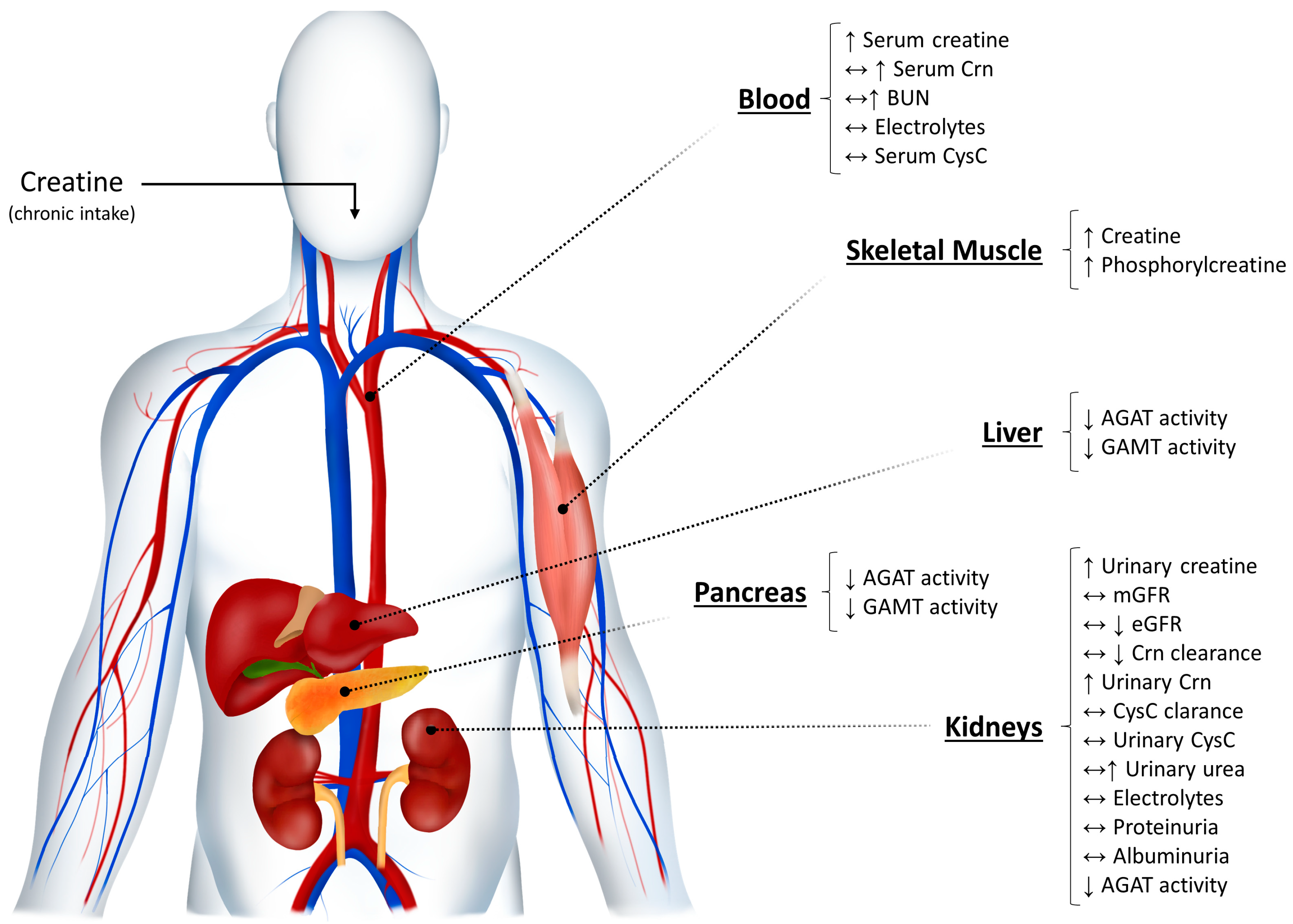
Effects of creatine supplementation on creatine metabolism and kidney function parameters, based on randomized controlled trials. Nutrients
Clinical Studies on Healthy Individuals
There are many good studies looking at the effect of creatine on kidney function in healthy individuals:
- In (1997, 1999, 2005), Poortmans and co-workers evaluated short- (5-14 days) and long-term (up to 5 years) effects of creatine on the kidney function and found no negative effects on the glomerular filtration rates or markers of albuminuria and kidney function.
- Kreider et al. (2003) tracked American college football athletes taking creatine for 21 months, with no evidence of adverse effects on kidney functionality markers. In fact, although creatine usage can lead to muscle cramping and dehydration, creatine users actually reported fewer occurrences of cramping, dehydration and injuries vs. non-users.
- Gualano et al. A randomized, double-blind, placebo-controlled trial was performed by the group in 2008, showing that 3 months of creatine supplementation did not impair kidney function in healthy individual (2008).
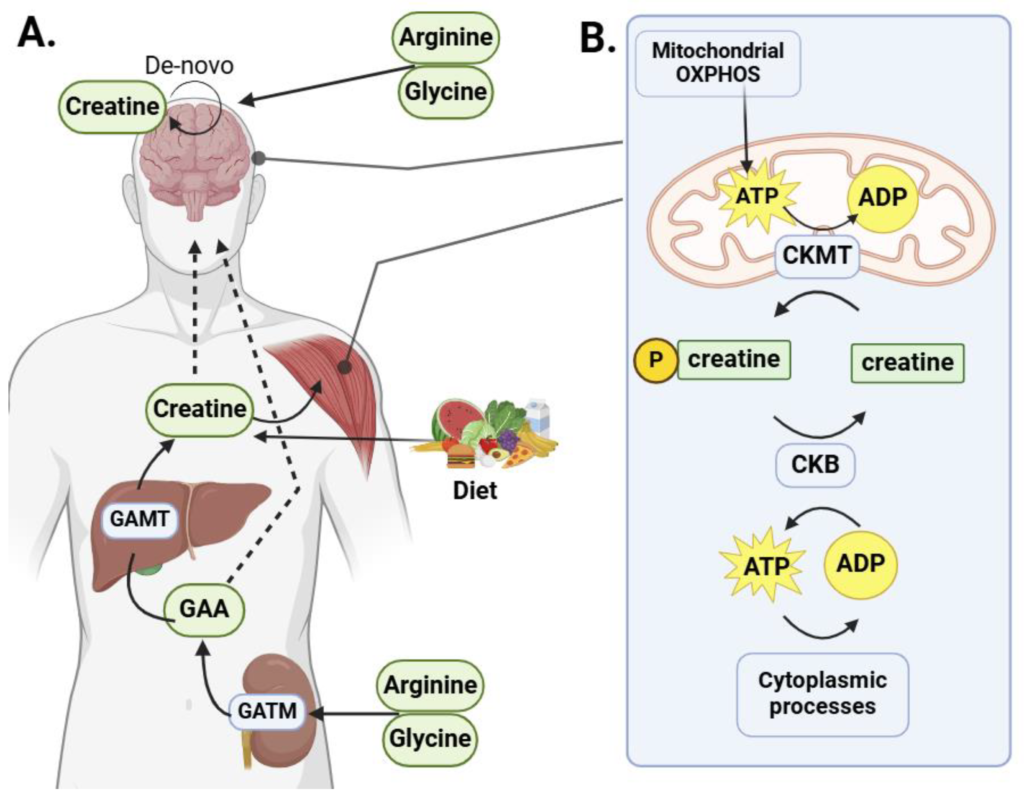
Studies on At-Risk Populations
Research has also examined creatine’s effects in populations that might be more susceptible to kidney issues:
- Gualano et al. (2011), the gold standard techniques agreed that creatine supplementation (5g/day for 12 weeks) in Type 2 diabetic patients did not harm kidney function.
- A case report by Gualano et al. (2010) used a young male participant with one kidney who took creatine and ate a high-protein diet without negative consequences on renal function.
- Lugaresi et al. (2013) showed that a long-term creatine supplementation regimen has no deleterious effect on renal functions in muscle-specific trained individuals on a high protein intake (1.2-3.1 g/kg/day).
Understanding Creatinine vs. Kidney Function
An important point that’s often misunderstood is the relationship between creatine supplementation, creatinine levels, and actual kidney function.
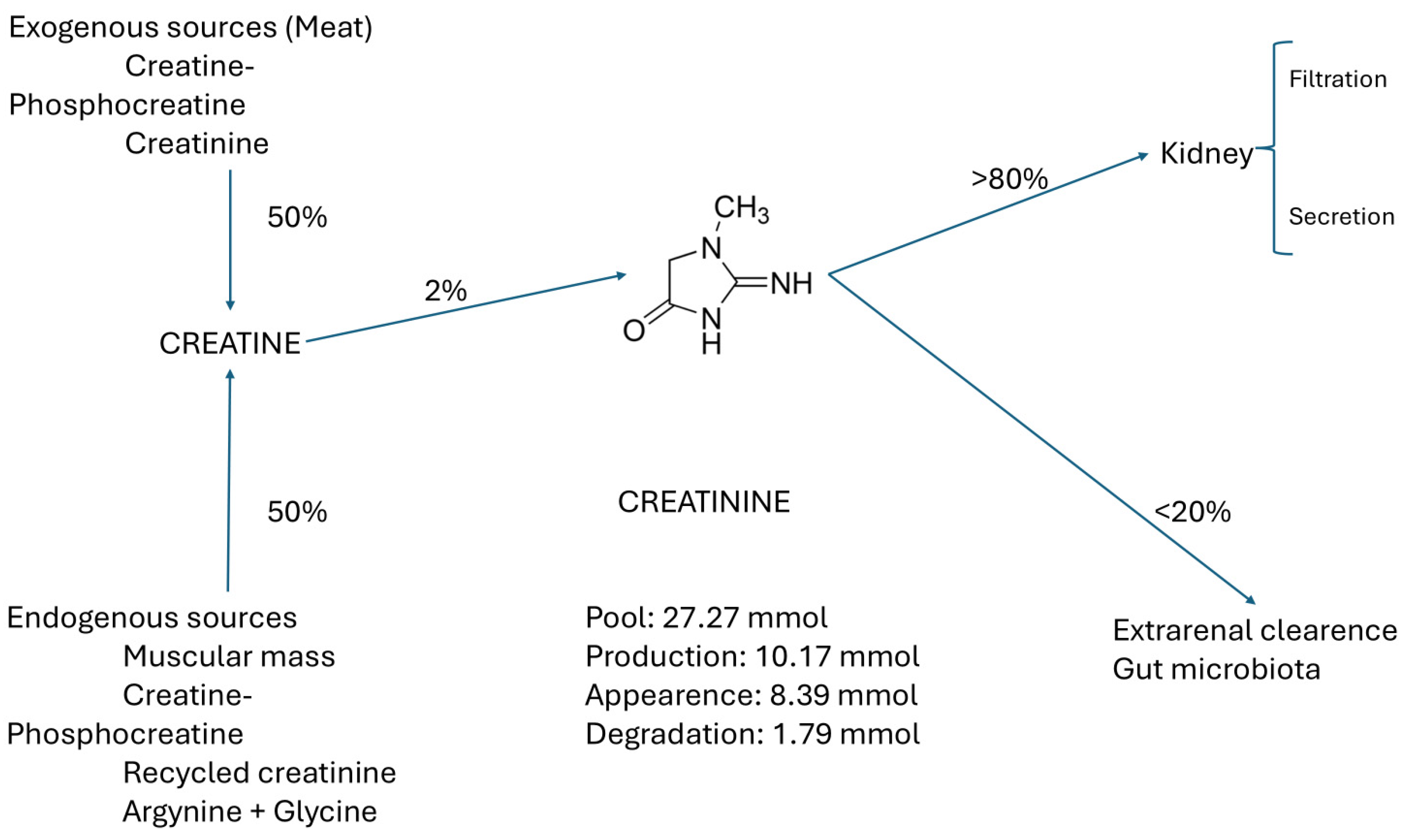
The relationship between creatine, creatinine metabolism, and kidney function assessment. MDPI
When you supplement with creatine, your serum creatinine levels may increase slightly. This occurs because:
- The more creatine in your body, the more that is converted to creatinine through natural degradation
- It is a normal physiologic response, not a sign of kidney injuryარაკ
- Gold-standard assessments of kidney function (eg, direct measures of glomerular filtration rate) do not demonstrate impairment.t
As Longobardi et al. as (2023) describe: “Serum Crn is the most widely used measure of kidney function, alone or as a measure to estimate the glomerular filtration rate. Since there is an increase in the total body creatine content with chronic creatine intake (5) it is conceivable that a physiological increase in the blood of Crn will take place after the administration of creatine without characterizing damage to the kidneys.
Key Findings from Research
Drawing on decades of research involving thousands of participants, here’s what science really says about creatine and kidney health:
- Some studies (days to weeks): No evidence of kidney dysfunction in healthy individuals taking recommended doses (3-5g/day or loading with 20g/day).
- Long-term studies (months to years): No evidence of renal dysfunction in healthy adults consuming creatine for > 5 years.
- Medical applications: Creatine has been employed in the clinical setting for diverse population groups, including patients with neurodegenerative diseases, with doses of 30g/day for periods of 5 years without suffering from side effects.
- Children and adolescents: Several studies have administered creatine to pediatric populations (mostly in patients with creatine synthesis disorders) without any evidence of kidney damage even at high doses.
- Pre-existing conditions: Caution is advised for individuals with severe kidney disease, but research hasn’t demonstrated creatine to be harmful even in populations with mild kidney dysfunction, type 2 diabetes, or a single kidney.

Recommendations for Safe Creatine Supplementation
While the evidence overwhelmingly supports creatine’s safety for kidney health, here are some practical recommendations:
- Stick to researched forms: Creatine monohydrate is the most studied form and has the strongest safety profile.
- Stick to the recommended dosages: Usual protocol is either:
- Loading phase: 20g/day for 5-7 days (divided in 4 doses) then 3-5g/day upkeep
- Or just 3-5g/day with no loading phase
- Hydration: Creatine will not make you dehydrated (actually, it helps hydration), but you should still keep good fluids.
- Seek medical advice if you have kidney disease: If you have significant existent kidney disease, you should get advice from a healthcare provider before engaging in supplementation.
- Buy high-quality supplements: Buy from trusted brands that are independently tested by a third party.
Conclusion: Science Over Myths
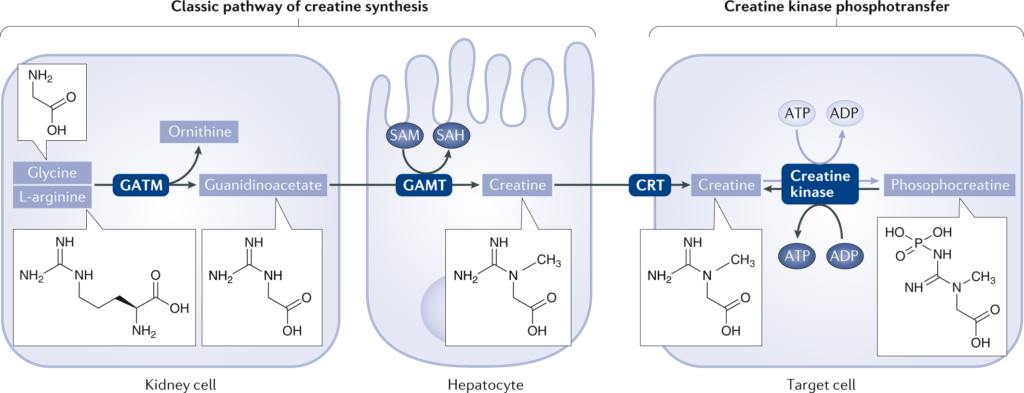
Reviewin over 30 years of scientific studies, including RCTs, meta-analyses, and long-term safety studies, the authors find no evidence that creatine supplementation harms renal function in healthy adults or in most clinical populations.
The enduring myth that creatine damage kidneys seems to stem from confusion regarding creatine levels, high-dose animal studies, and isolated clinical case series without established causation.
For healthy individuals who are using appropriate dosing protocols, creatine monohydrate supplementation has been shown to be safe for kidney health and beneficial for exercise performance, muscle mass, and even health benefits in people beyond athletics.
As the International Society of Sports Nutrition states in its position stand: “Creatine monohydrate supplementation is not only safe, but has been reported to have a number of therapeutic benefits in healthy and diseased populations spanning from infants to the elderly.There is no compelling scientific evidence that the short- or long-term use of creatine monohydrate has any detrimental effects on otherwise healthy individuals.”
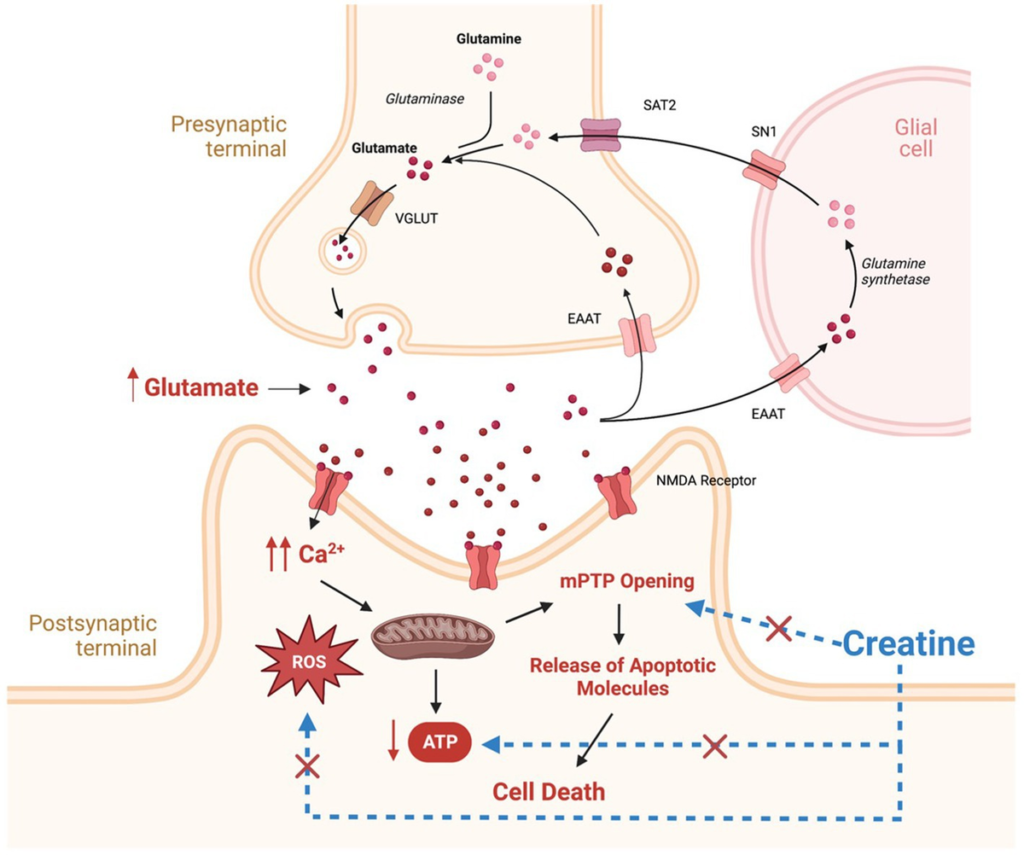
References:
- Longobardi, I., Gualano, B., Seguro, A.C., & Roschel, H. (2023). Is it Time for a Requiem for Creatine Supplementation Induced Renal Failure A Narrative Review. Nutrients, 15(6), 1466. MDPI
- Kreider, R.B., Kalman, D.S., Antonio, J., et al. (2017). International Society of Sports Nutrition position stand: safety and efficacy of creatine supplementation in exercise, sport, and medicine. Journal of the International Society of Sports Nutrition, 14(1), 18. Taylor & Francis
- Gualano, B., Ugrinowitsch, C., Novaes, R.B., etc. (2008). A randomized, double blind, placebo controlled clinical trial studying the renal function effects of creatine supplementation European Journal of Applied Physiology103, 33-40.
- Gualano, B., de Salles Painelli, V., Roschel, H., et al. (2011). Supplementation with creatine does not cause adverse effects on kidney function among type 2 diabetic: A randomized, double-blind, placebo-controlled clinical trial European Journal of Applied Physiology 111, 749-756.
- Lugaresi, R., Leme, M., de Salles Painelli, V., et al. (2013). Does chronic creatine intake adversely affect kidney function in resistance-trained individuals consuming a high-protein diet? 10, 26. doi:10.1186/1550-2783-10-26
For more blogs visit our home page:



